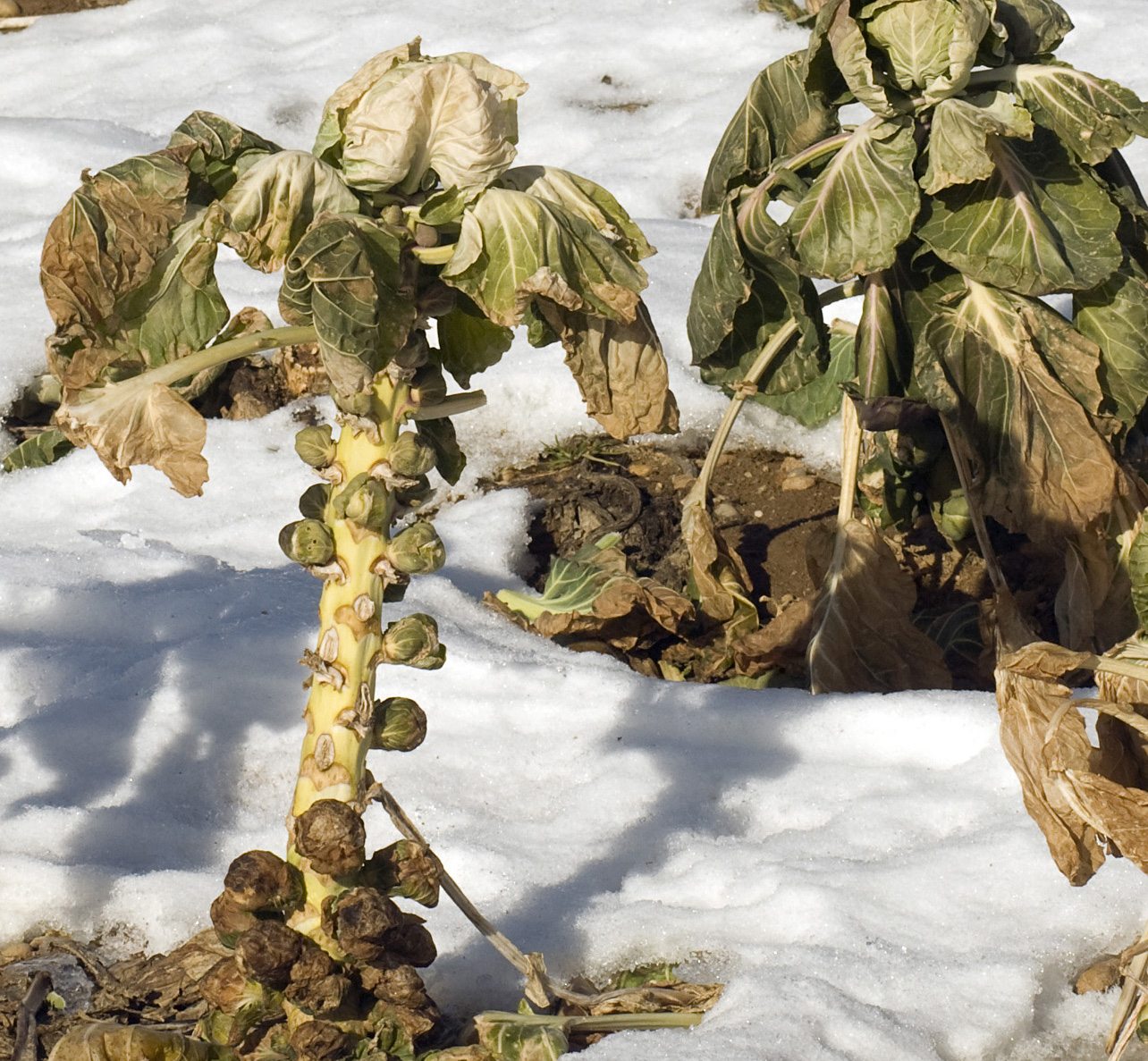Brussels Sprouts: Pests And Diseases Affecting Brussels Sprouts Plants


Sign up for the Gardening Know How newsletter today and receive a free copy of our e-book "How to Grow Delicious Tomatoes".
You are now subscribed
Your newsletter sign-up was successful
Brussels sprouts resemble little cabbages, arrayed on a stiff vertical stem. The rather old-fashioned vegetable has a "love it or hate it" reputation, but the sprouts are packed with nutrients and versatile ways to prepare. These plants need a long growing season and the gardener needs to be wary of common issues in Brussels sprouts. Like most plants, there are specific Brussels sprout pests and diseases affecting Brussels sprouts.
Brussels Sprouts Problems
Sprouts are harvested in fall when the cool weather produces the best flavor. Brussels sprouts are not difficult to grow, but they are heavy feeders and need supplemental fertilization or heavily amended soil. However, soils that have been worked prior to planting are too loose to support good growth. This condition produces loose sprouts. Sow seed directly into the garden in mid-summer and provide plenty of water for best growth. Many varieties can take up to 100 days for the first harvest. During this time, watch for common issues in Brussels sprouts and don't be shocked if your Brussels sprout plants aren't producing.
Brussels Sprout Pests
It's the rare plant that encounters no pest or disease issues. Brussels sprouts are affected by the same insects that plague cabbage plants. A few of these include:
Protect young plants from cutworms by putting a collar around the plants. You can prevent flying insect damage with a net or row cover over the crop. Practice crop rotation to avoid some of the common insect larvae that live in soil and feed on foliage and roots. Use organic pesticides to combat severe infestations and “pick and crush” larger pests. The best defense from Brussels sprout pests is healthy plants. Make sure they get adequate water and plant in well-drained soil in full sun. Plants with good vigor can more easily withstand minor infestations from Brussels sprout pests.
Diseases Affecting Brussels Sprouts
Bacterial and fungal diseases are the primary Brussels sprouts problems. Some of these just discolor or mar foliage, but others can cause defoliation. This becomes a problem in large amounts because it affects the plant's ability to photosynthesize. Bacterial diseases spread quickly and thrive in moist areas. Minimize overhead watering and remove affected plants. Similarly, fungal issues thrive in damp conditions. Some fungus survives in debris over the winter. It is a good idea to remove all old plant material, which may harbor spores. Molds, like white mold and downy or powdery mildew, can be prevented by drip irrigation and good plant spacing. Most diseases affecting Brussels sprouts are easy to prevent with good cultivation and care practices.
Common Issues in Brussels Sprouts
A condition called bolting is one of the main Brussels sprouts problems. There are varieties of seed that are resistant to bolting, which is when the plant grows a flower and produces seed. These plants will not form the little cabbage heads. Young plants are prone to bolt if temperatures are below 50 F. (10 C.) for long periods. Brussels sprouts may also have a hollow stem, which inhibits moisture and nutrient exchange. This is caused by excessive nitrogen and a rapid rate of growth. Follow feeding instructions and use an organic food made for cole vegetables.
Sign up for the Gardening Know How newsletter today and receive a free copy of our e-book "How to Grow Delicious Tomatoes".

Bonnie Grant is a professional landscaper with a Certification in Urban Gardening. She has been gardening and writing for 15 years. A former professional chef, she has a passion for edible landscaping.